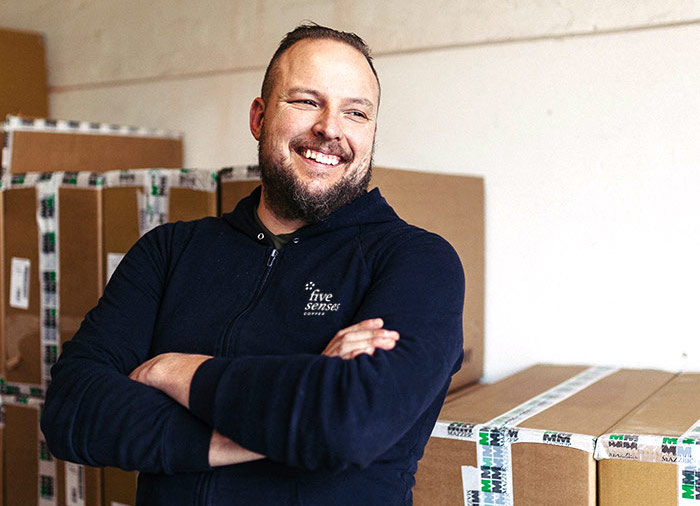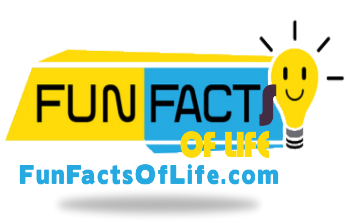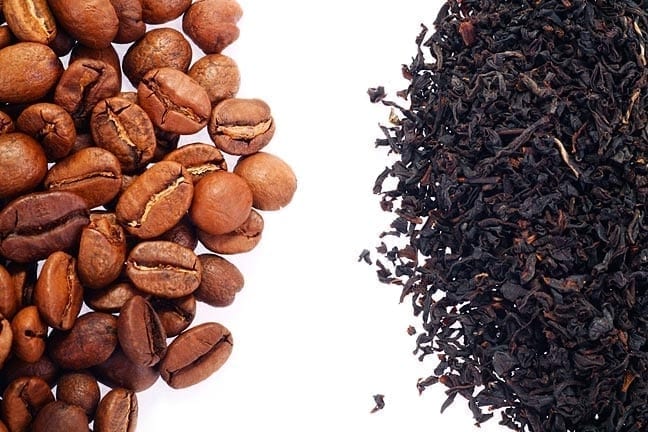If you are currently following a ketogenic diet, also called keto, then you have probably…

A Chat with Expert Technician Caleb Heinselman of Five Senses Coffee
Let me start by saying I do not work for the Australian Board of Tourism. That said, over the next few months, you will see a lot of articles about the service culture and coffee experience in Australia. I’ll be working with our agent-in-hiding in Australia, Richard Muhl of Five Senses.
I’ve always been fascinated by the fact that every time I ask somebody where they had their best cup of coffee ever, those who travel almost always say the same thing: Australia. I was curious if the passion for excellence in coffee carried over to what we do: service.
Hylan Joseph: Speak to a short history of your company. How and why was it founded? What values do you feel define your organization?
Caleb Heinselman: Five Senses was created by Dean Gallagher. In 1997 he was School principle in Kundiawa, Papua New Guinea. The School was surrounded by rich coffee plantations and the families running them. This is where Dean’s love for coffee began. In 2000, he decided to make a change and moved back to his hometown of Perth (WA), but he did not come alone; he brought his passion for coffee with him. With small lots of green from the area he left behind in PNG and a 1-kilo roaster in tin shed, Five Senses was born.
Five Senses and everyone working within it all have one goal: impacting people positively. From how the coffee QC team frets over every roast, to how our techs create long lasting positive relationships with the cafes and their individual territories, and all between the two, each employee aims to make a professional, positive impact.
HJ: How does regulation affect your industry when hiring and training techs?
CH: Honestly there are no clear regulations focused on our profession in Australia. Technicians/employers find themselves in a fragile position when approaching some state EnergySafe departments, simply for the fact that our skills are not recognized as a trade. When applying for restricted electrical licensing, one needs to present competency certificates from a trade school as well as manufacturers training certificates along with the wording on their application in such a way that convinces them that the technician will be performing connect/disconnect work as a part of their daily job. Some technicians will do the classes as well as get certifications only to have their application denied immediately.
HJ: Australia is well known for having a great cafe experience. Why do you think that is?
CH: The coffee culture here in AU is more of an actual “hospitality” experience, not a fast food one. You feel it the minute you walk into your top end specialty coffee cafes. You feel, smell, taste quality. This quality is driven by a sincere desire to create a product you feel privileged to pay for. Everything from the quality of bean, to milk, to machine, even down to the cups used, are meticulously chosen to be better than the competition of the same mindset and standards down the street.
HJ: What are your companies’ best practices?
CH: Five Senses is committed to sustainability and prosperity to the partners we source our beans from. We support Trees for Kibira. This is a huge project to stabilize the environment and soil health in the Kayanza Province of Burundi. We have partnered with Long Miles Coffee Project in reforestation. With this reforestation, it takes boots on the ground, so Five Senses provides all the Long Miles coffee scouts with new boots to keep them comfortable and safe. These scouts are trained in basic agronomy and roam the Long Miles hills in search of the antestia bug, as well as teaching sustainable farming practices to local families.
HJ: Individually, what made you pursue a career in coffee? What aspect of the coffee business do you like?
CH: In 1997, I was living in Seattle. the job that brought me out from Montana was soon to end, so I reached out to some old family friends that owned a local espresso service company. They were willing to give me an opportunity and I took it. I haven’t looked back since.
For me, the coffee industry holds so many unique and interesting ideas that do not stop evolving — from conceptualizing and designing, to proving the concept in that instance. Just pushing the industry forward one more small step, history [is] still being made with a product [that is] 500+ years old.
HJ: Any advice for a new tech or someone looking to enter coffee?
CH: When it comes to advice for any new tech, I would say, outside of safety being paramount, the real work is creating and developing the relationship with the customer. That’s the most useful and important piece of advice I can give.
[Editor’s note: This article is appearing as part of an unpaid editorial collaboration between DCN and the Coffee Technicians Guild. It was originally published in the CTG blog and is republished here with permission. The Coffee Technicians Guild (CTG) is an official trade guild of the Specialty Coffee Association (SCA) dedicated to supporting the coffee industry through the development of professional technicians.]
Related Reading
Hylan Joseph
Hylan Joseph is the West Coast service manager for Espresso Partners and a member of the Leadership Council of the Coffee Technicians Guild







